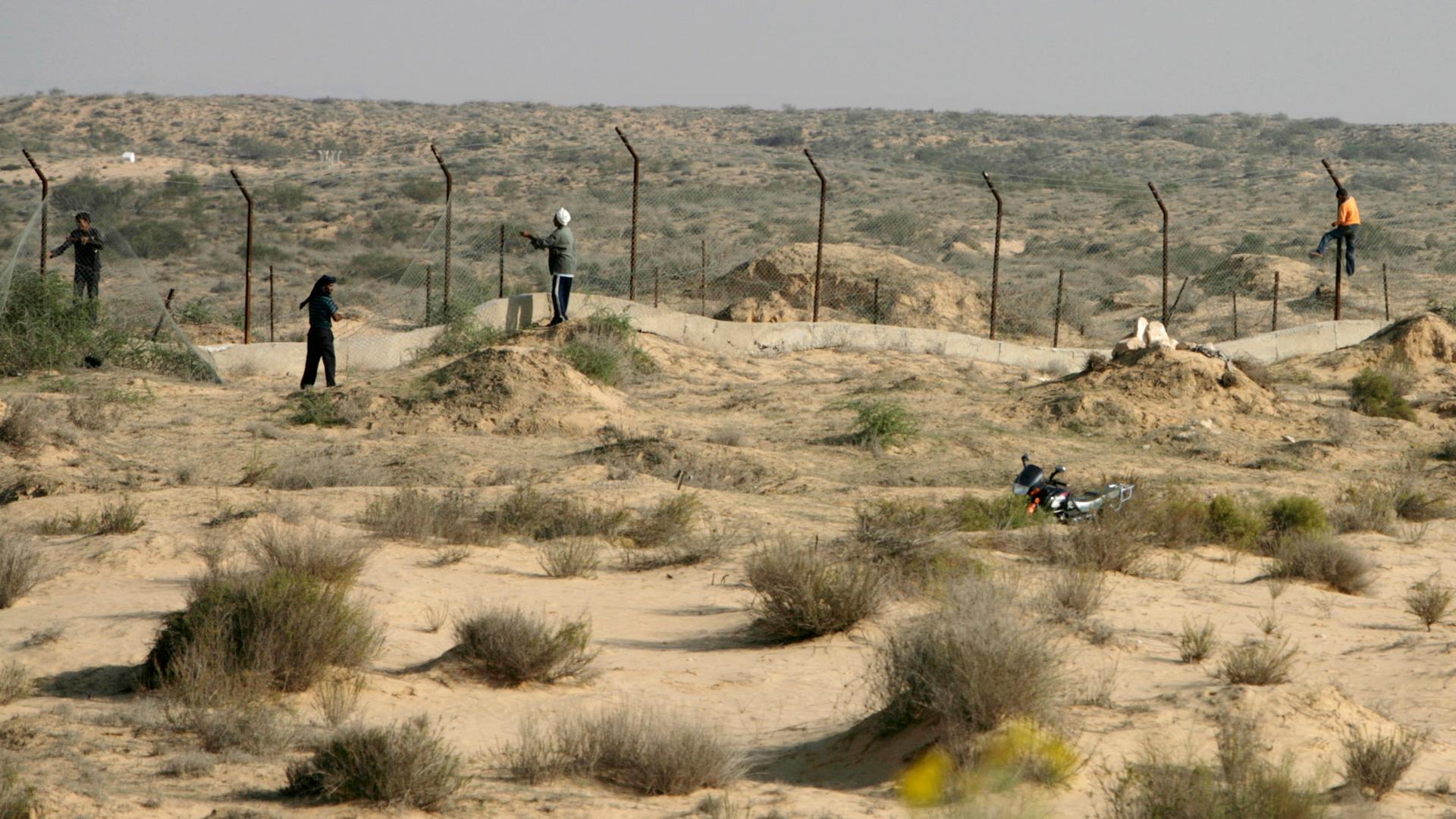An Eritrean refugee endured brutal torture. But he may find hope on a ranch in California
Bedouin loot barbed wire near a police checkpoint on the Egyptian border with Israel on the Sinai Peninsula.
Not too long ago, Philemon Semere was stuck in a seemingly hopeless situation in the deserts of Sinai. Now, he could soon find himself on a ranch in California.
Two years ago, the Eritrean refugee was taken hostage by a Bedouin gang in Egypt’s Sinai Peninsula. The area is sparsely populated, allowing these gangs to run loose, kidnapping refugees from East Africa and holding them for ransom.
The captors regularly call the hostages’ families, demanding huge amounts of money. The family of one of the refugees shared the number they had been getting calls from with Mike Thomson of the BBC. Thomson called the number and managed to speak to Semere.
He told the reporter that his kidnappers were demanding $25,000 – a sum his family didn’t have. He also described the torture he was regularly subjected to — daily beatings and what he called “burning by fire".
"I have not enough food, I have not enough water," Semere said, clearly in distress. "I've been hit by sticks and burnt by fire with electricity. Daily, burnt by fire and hit by sticks. My body is burning."
At one point, his captor cut in: “If he don’t give any money, I must kill Philemon here.”
After seven gruelling months of torture and constant death threats, Semere was finally freed — his family gave all they had to pay a sufficient amount of the ransom.
"Words are not enough to say how good I'm doing right now,” he told the BBC after his release in 2013. “I'm so relieved after everything I went through. Death was very near to me and at one point all hope was gone."
Semere made it to Cairo, where he’s currently waiting for the United Nations to process his application for resettlement.
This is where Alisha Taff comes in. She found Mike Thomson’s story about Semere on the BBC’s website and was immediately struck by it.
“I was pretty horrified,” Taff says. “It just compelled me to reach out to Mike and see if there was anything Philemon needed or could use.”
After an email correspondence with the refugee, she learned he wasn’t seeking financial help.
“What it really sounded like was that he needed hope more than anything,” Taff says. But she had something more concrete to offer Semere.
Taff owns Rock Front Ranch, located in a secluded area of California east of Santa Maria. She offered Semere a place to stay and gainful employment.
“We’re very remote, but we have a good life,” she says.
She has also spoken with friends and acquaintances who would be willing to get him to church — Semere is deeply religious — and English classes at their local community college.
And if Semere accepts her offer, the move could be coming quickly — the UN may try to fast track his application.
But with all the struggling people in the world, why did she choose to help this one man in particular?
“There are many traumatic, harrowing, tragic stories that come across the line. Just that day, I felt very compelled to see if I could lend some sort of a hand,” Taff says. “You become numb to all the things that are going on in the world. If every person stepped out and made a time investment in someone else that really needed help, really needed a hand, this would definitely be a different world.”
